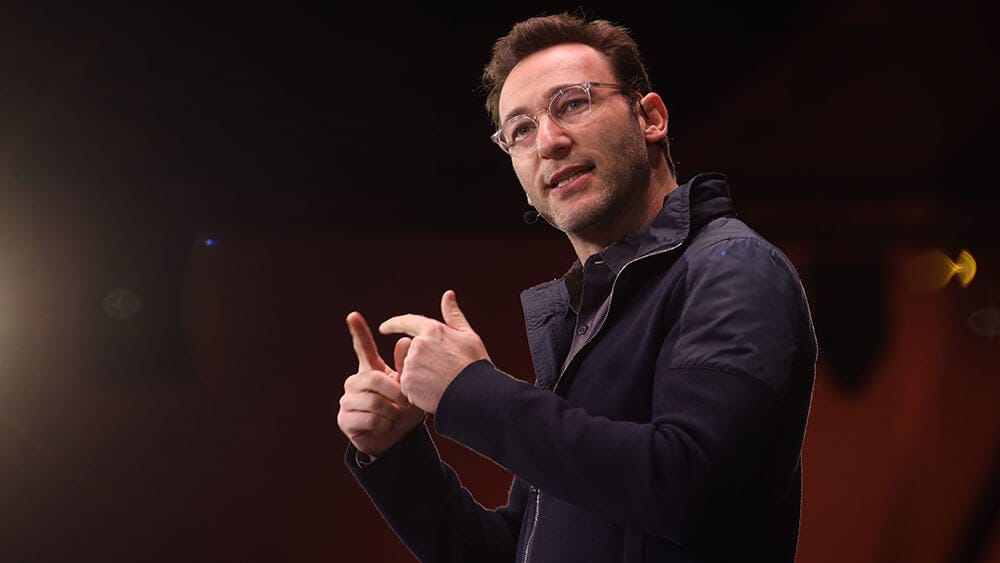A Blown Call
Years ago I believed Microsoft was on the right path. It seems I was very far from correct.

Nearly seven years ago I published an episode of the Bounty Board podcast. The focus of said episode was the difference between the “finite” and the “infinite game,” a terminology I discovered through Simon Sinek. The talk he gave dug into what it meant for companies to play strategies with focus on singular objectives or towards the future of the market they competed in, to minimalize it at least. The argument played out in an anecdote about attending both a Microsoft and and Apple conference. At Microsoft the vast majority of the executives presented on ways to improve the company’s earnings in the next quarter or fiscal year. Alternatively, the executives at Apple were presenting on how they could make teacher’s and student’s lives easier. It was a stark contrast and an interesting ideological difference to point out.
The podcast we recorded took the same lens of differentiation and applied it to the game industry. In 2018 Gamepass was just a year old, but the reverberations were starting to be felt. It was still very new, so it was hard to tell what kind of impact it would have on the industry at large. Still, we found a tremendous amount of enjoyment in debating what kind of impact would follow. We were at the height of the Xbox One and the PlayStation 4, games like God of War and Red Dead Redemption were completely dominating the social space, and now a conversation about the “Netflix of games“ had us excited. Now, I haven’t relistened to the episode I’m describing, but I distinctly remember taking the side of Xbox in this burgeoning era. The idea of an easy to access library of games with new exclusive games guaranteed as part of the subscription sounded amazing.
There is an entire economics whitepaper in the details I’m not fully aware of on topics like subscription services for media. I know Netflix has been running along the knife’s edge for years because of the purposefully fuzzy survivability or profitability of its business model. At the onset, Gamepass looked and sounded amazing. There were detractors, sure, but of course there were. New shit always drew the ire of those not keen or unwilling to understand the business of games. Nearly eight years later, I’ve realized the lack of understanding was coming from me.
What appeared to be Microsoft pivoting with Xbox in pursuit of a more infinite model of game distribution and production seems, at this point, to exist as a means of extracting wealth the same way you extract juice from a citrus fruit. By pulverizing the fruit. And just as we don’t need another Superman or Batman origin story, I won’t assume my readers haven’t been aware of the massive amount of personnel shrink the game industry has been going through in the last few years. Shrink that is never more evident than at the biggest publishers. Studios are closing, games are getting canceled, and the large scale production of video games is in a rapid decline.
I have argued before that Grand Theft Auto VI is going to be the last game of its scale for a long time. The last few years have only solidified my opinion. Effectively, the only AAA games that still find their way to market are long-tenured institutions. Call of Duty, Battlefield, Fromsoft games have moved into this realm. Otherwise, I think you could argue most everything else is one or several steps down from the peak. And, in a trend becoming ever more prevalent, the biggest games from the last few years have been made by studios more comfortably categorized in those smaller brackets. Baldur’s Gate is the most gray. Larian is large, but it isn’t publicly owned, affording them years longer to complete their work than any other studio of the same size.
In the last five years alone, games like Hades, AstroBot, Cult of the Lamb, Balatro, Clair Obscur, and It Takes Two have soaked up the spotlight. And I’ve barely scratched the surface. Meanwhile Microsoft shuttered Tango Gameworks, the studio behind Hi-Fi Rush, despite its resounding success and excellent critical reception, only a year after release. Not even enough time to finish the sequel they were already working on. Still even more condemning is the recent closure of The Initiative, a staggeringly expensive “AAAA” project studio Xbox touted as making the future of games for the publisher. The studio was opened in 2018. They announced they were making Perfect Dark in 2020. They showed supposed gameplay of Perfect Dark in 2024. If we are to believe what we saw was real, Perfect Dark looked really good. It had me excited. And here I believed, simply because The Initiative was such a big announcement and had been running development so long, it would be one of the more immune workshops when layoffs came around. Boy was I wrong.
What Xbox has taught us over the last few years is simple: Nobody is safe. Now Gamepass Ultimate is $30 a month. In 2017 Gamepass was $10 dollars. It’s not like Xbox is the only one at fault here, nearly every subscription service has seen price hikes over the last ten years. You come to expect it. Though I can’t help but ask myself the question: Is the value still there? It was far easier to see how $120 a year was well worth it. If you played a meager two AAA releases or first party titles in a calendar year your investment paid off. As someone constantly playing new things it was a steal. Now, since building my own PC and since Xbox has struggled to release titles, the math gets a bit harder. Is my engagement with Gamepass really worth $360 a year? Does Gamepass release six titles a year individually worth $60? But therein lies the rub: how many people, normal-ass people, are playing six or more games a year? The data is muddy, but it seems like the average lies somewhere between five and nine games per year on average. Technically then, Gamepass could be worth it for most everyone. But If you were to ask me, in a boardroom full of execs, I don’t think its sound practice raising the price of your premier subscription service in a way that makes your customers make time to get their money’s worth. But then, the goalposts have moved haven’t they?

Companies like Microsoft and Apple (perhaps to a lesser degree) and Meta and Twitter (refuse to call Musk’s Frankenstein project X) aren’t trying to gain more users anymore as much as they are trying to colonize our free time. Some of them have even said their biggest competition is fucking sleep. Is Gamepass on a trajectory to become the next service vying for each moment you are awake? It’s hard to argue against it with a $360/year subscription offering. And while I understand $360 is a $60 game every two months, the industry is trending ever more towards games with unfathomable amounts of bloat and busy work. It took me 95 hours to beat Assassin’s Creed Shadows. I took my time exploring the world and allowing myself to be distracted, sure, but when I played Brotherhood a few years ago I completed it in 18 hours. AC Mirage is only a few years old. I hundred percented that game in 30 hours. Can you squeeze a 90+ hour title into your free time every two months?
All of this begs so many questions. Why are so many games so damn big? Can my playing an indie game on Gamepass really help those little studios stay open and profitable? Should I can Gamepass and go back to buying games individually? All of these questions lack easy answers. And each of them, when asked in the context of Xbox, leads me back to a single place. The Sinek talk.
Xbox nets a profit for Microsoft in the larger scheme of their fiscal profile. It makes them money. Year to year, Xbox is an earner, not a loser. And yet, this year they laid off over nine thousand people. Meanwhile, Apple TV is running at a loss. Not a small one either. Apple loses a billion dollars a year running Apple TV. A fucking billion dollars. And yet, as a service, Apple TV is cementing itself as a genuinely talented art house for sci-fi and other genre specific television and film. What’s the difference here? They are both multi-trillion dollar companies. Do you know how much money you have when you subtract a billion dollars from 3.6 trillion? Well…you may be shocked to find out, the answer is STILL 3.6 TRILLION FUCKING DOLLARS. Remember the conferences referenced in the Simon Sinek video? The difference between pushing towards earnings reports and making lives easier, better?
It would be hard to quantify Apple’s directive for improving people’ lives. I understand that. Perhaps all of this is some off-the-wall theorizing and I’m way off the point. Still, I can’t help but feel a pull of familiarity. Like we have seen something similar before. Listen, we already treat companies as if they were people legally, so follow me down this rabbit hole a bit. The ultra-wealthy used to strive to leave something behind. Rockefeller, Carnegie, Mellon, Morgan. All tentpoles of the American Industrial Revolution. How many buildings, art institutes, theaters, parks, libraries have been put up in their names? Now I’m not here to erase the unsavory practices some of these businessmen have been accused of, but what I am here doing is pointing out a stark difference between the billionaires of the American past and now. Let’s not forget the Medici family and the patron-artist structure of the Italian Renaissance. Money used to strive to create and/or support art. Through direct or indirect action, the above names became signposts of development, prosperity, progress. I am arguing Apple might be doing that. Or, at the very least, they are trying to. I am also arguing that companies like Sony and Microsoft have lost the plot a bit. Microsoft perhaps a LOT. You think we are ever going to see a theater named after Elon Musk? An art institute funded entirely by the Trump family? Museums and parks paid for by Zuckerberg?
Instead, those big companies and names are invested in an ever escalating arms race whose primary goal is to funded algorithmic research that seeks to colonize our sleep and free time at the cost of our relationships and environment. The three richest men in the world have spent hundreds of billions on what they are calling “AI” this year alone. For a stab at intelligence that’s goal isn’t even true intelligence, its facsimile. Facsimulation. An attempt at copying human intelligence using deductive language models incapable of actually thinking and calculating. That’s what our patrons are doing with their money. Trying to find a way to create a version of humanity they can control, so they can use it to manipulate real humanity from a distance. Excellent. And an executive producer from Xbox told the nine thousand employees they laid off to use AI to, “help reduce the emotional and cognitive load that comes with job loss.”
Get fucked.
So…I was wrong. Microsoft wasn’t playing the infinite game, as much as I wanted to hope they were. Instead they were simply hoping they had found the fabled “infinite money glitch.” And here we are, holding the now short end of the stick, wondering what the fuck happened to the rest of it.






Insightful. That finite vs. infinite game distincion always make me wonder how much PR influences perception of long-term vision. I'm curious how you see the 'infinite game' concept playing out with something like Gamepass in the long run, especially now that it's matured beyond its early days. Is it truly fostering an infinite market or just changing the rules of the finite one?